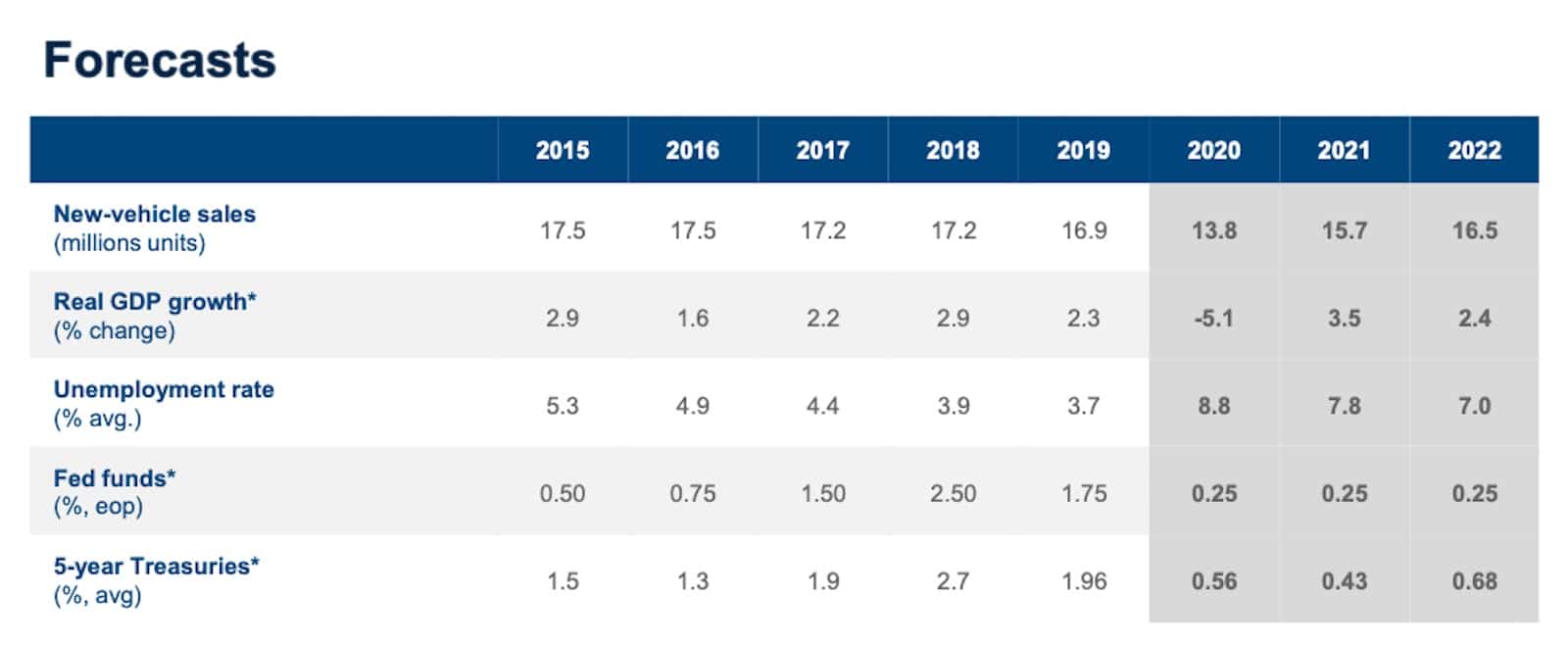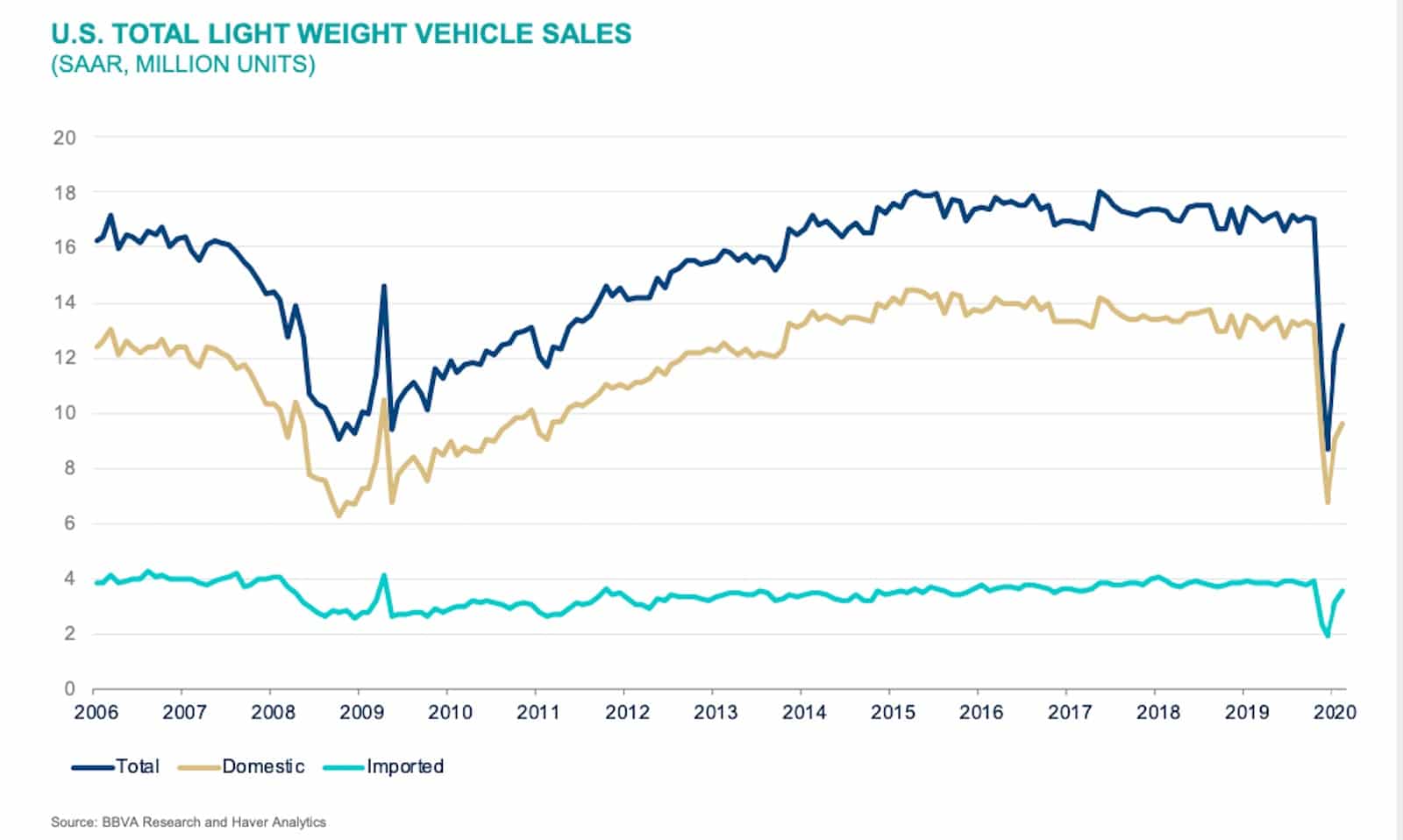
Changes in consumer behavior when it comes to buying new vehicles could have a negative impact on sales long term.
U.S. auto sales have been hammered since the coronavirus pandemic hit the country in late February and early March.
After tough results in March and April, the market has slowly begun to bounce back, offering encouragement to automakers and the industry and leading them to revise some sales forecasts to brighter numbers than originally predicted.
However, BBVA Research’s newly released July auto sales chartbook reveals that while sales did outrun early projections, it’s still a difficult time for the industry right now with Q2 new vehicle sales down 33.7% from the year-ago period. It’s the worst decline since the Great Recession in 2009.
(Despite pandemic, federal cash-for-clunkers-style bailout unlikely.)
The group notes that despite increases in May and June, supported by fiscal stimulus and the partial reopening of the economy, sales are “likely to remain subdued through the remainder of 2020 as the pandemic continues to wreak havoc on economic activity.”
Marcial  Nava, BBVA principal economist and author of the new study, believes auto sales could be affected for a long time.
Nava, BBVA principal economist and author of the new study, believes auto sales could be affected for a long time.
Changes in how vehicles are now bought, hastened by the outbreak, may negatively impact sales. Some of those behavioral adjustments include people relocating away from urban areas and the increasing rate of remote work among employees across the U.S.
In fact, Nava doesn’t expect the industry to get back to the rate it had enjoy – about 17 million units annually – in the next two years. He believes sales this year will come in at 13.8 million vehicles and 15.6 million in 2021. He forecasts 2022 sales to hit 16.5 million units.
(Sales drop again in July with Subaru, Toyota leading the pack.)
He’s not alone in his suggestion that the market won’t see 17 million units again soon. J.D. Power analysts said yesterday that the ability of the U.S. market return to the sales numbers seen before the COVID meltdown is uncertain, if not unlikely.
A variety of factors could play into that, such as a decline in the number of vehicles per household, an increase in reliance on ride-sharing services and the fact that Americans continue to hold onto their vehicles longer and longer. The latter point could be influenced by all the 80- and 90-month loans that manufacturers have been offering during the pandemic.
Adding to the complexity of trying to figure how the market will be impact is the aformentioned changes in the way buyers are shopping for, and then financing, their vehicles. A record number of U.S. car shoppers are doing their research digitally, then lining up financing online, as well. More and more have been completing the transaction virtually, as well, and that’s expected to continue going forward.
(Average U.S. auto older than ever; buyers delay trading in due to pandemic.)
